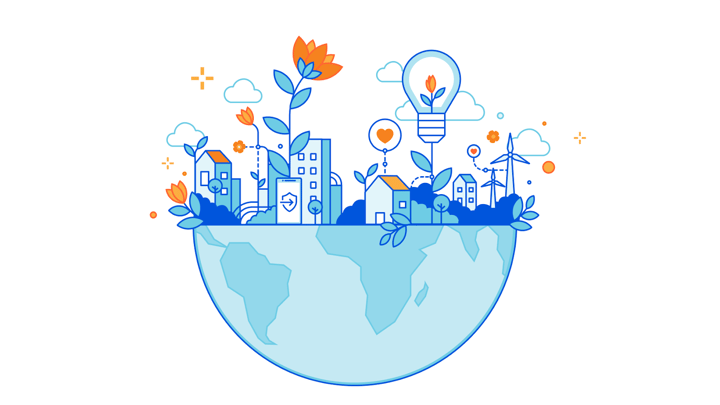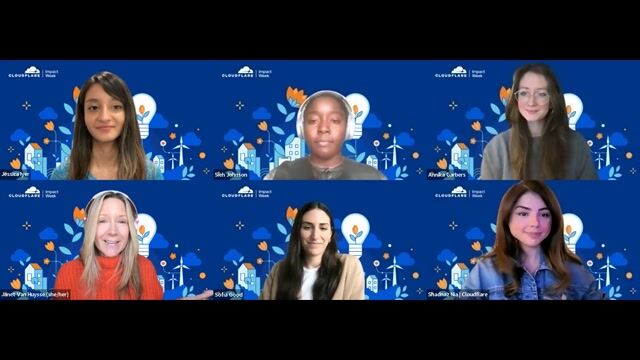Impact Week
Tune in for all of Cloudflare's Impact Week programming, featuring an array of CFTV episodes spanning environmental, social, and governance issues.
Listen and follow the Impact Week podcast

Tune in for all of Cloudflare's Impact Week programming, featuring an array of CFTV episodes spanning environmental, social, and governance issues.
Listen and follow the Impact Week podcast
Featured Sessions
All episodes

Welcome to Cloudflare Impact Week 2022! Cloudflare's mission is to help build a better Internet. We believe a better Internet can be not only a force for good, but an engine of global sustainability. This week we'll be highlighting an array of...
Welcome to Cloudflare Impact Week 2022! Cloudflare's mission is to help build a better Internet. We believe a better Internet can be not only a force for good, but an engine of global sustainability. This week we'll be highlighting an array of...
Welcome to Cloudflare Impact Week 2022! Cloudflare's mission is to help build a better Internet. We believe a better Internet can be not only a force for good, but an engine of global sustainability. This week we'll be highlighting an array of...
Welcome to Cloudflare Impact Week 2022! Cloudflare's mission is to help build a better Internet. We believe a better Internet can be not only a force for good, but an engine of global sustainability. This week we'll be highlighting an array of...
Welcome to Cloudflare Impact Week 2022! Cloudflare's mission is to help build a better Internet. We believe a better Internet can be not only a force for good, but an engine of global sustainability. This week we'll be highlighting an array of...
Welcome to Cloudflare Impact Week 2022! Cloudflare's mission is to help build a better Internet. We believe a better Internet can be not only a force for good, but an engine of global sustainability. This week we'll be highlighting an array of...
Welcome to Cloudflare Impact Week 2022! Cloudflare's mission is to help build a better Internet. We believe a better Internet can be not only a force for good, but an engine of global sustainability. This week we'll be highlighting an array of...
Welcome to Cloudflare Impact Week 2022! Cloudflare's mission is to help build a better Internet. We believe a better Internet can be not only a force for good, but an engine of global sustainability. This week we'll be highlighting an array of...
Welcome to Cloudflare Impact Week 2022! Cloudflare's mission is to help build a better Internet. We believe a better Internet can be not only a force for good, but an engine of global sustainability. This week we'll be highlighting an array of...
Welcome to Cloudflare Impact Week 2022! Cloudflare's mission is to help build a better Internet. We believe a better Internet can be not only a force for good, but an engine of global sustainability. This week we'll be highlighting an array of...



